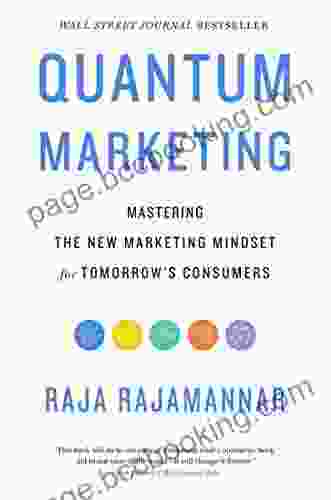Unveiling the Power of Qualitative Research: An In-Depth Guide to Answering Your Research Question

In the realm of research, the quest for knowledge demands rigorous and effective methods to unravel complex questions. Among the diverse range of research approaches, qualitative methods stand out as invaluable tools for exploring the depths of human experiences, unveiling hidden meanings, and capturing the richness of social phenomena. This comprehensive guide, "Using Qualitative Methods To Answer Your Research Question," delves into the intricacies of qualitative research, empowering researchers with the knowledge and skills to craft insightful and transformative studies.
Understanding Qualitative Research
Qualitative research embraces a holistic approach, prioritizing the collection and analysis of non-numerical data to gain a comprehensive understanding of human behavior, beliefs, and experiences. Unlike quantitative methods, which rely on statistical measures, qualitative research emphasizes the subjective aspects of human phenomena, capturing the nuances and complexities that often elude numerical analysis.
4.1 out of 5
| Language | : | English |
| File size | : | 1407 KB |
| Text-to-Speech | : | Enabled |
| Screen Reader | : | Supported |
| Enhanced typesetting | : | Enabled |
| Word Wise | : | Enabled |
| Print length | : | 205 pages |
Key Characteristics of Qualitative Research:
- Subjectivity: Qualitative research acknowledges the subjective nature of human experience, recognizing that individuals' perspectives and interpretations play a crucial role in shaping their actions and beliefs.
- Holistic Approach: Rather than narrowly focusing on isolated variables, qualitative research seeks to understand phenomena within their broader social and cultural contexts.
- Exploratory Nature: Qualitative research often adopts an exploratory stance, allowing researchers to delve into uncharted territories and generate new insights rather than testing predefined hypotheses.
- Inductive Reasoning: Qualitative research employs inductive reasoning, where researchers derive generalizations from specific observations and experiences.
- Thick Description: Qualitative researchers strive to provide detailed and vivid descriptions of the phenomena they study, capturing the intricacies and subtleties that contribute to a deep understanding.
Types of Qualitative Research
The realm of qualitative research encompasses a diverse range of methodologies, each tailored to specific research objectives. Some of the most prevalent types include:
1. Interviews:
Interviews involve one-on-one or group discussions, where researchers engage participants in open-ended conversations to explore their thoughts, feelings, and experiences.
2. Focus Groups:
Focus groups gather a small number of participants to discuss a particular topic or issue, facilitating group dynamics and generating insights from collective interactions.
3. Ethnography:
Ethnography immerses researchers in the daily lives of participants, allowing them to observe and participate in their natural settings to gain a comprehensive understanding of their culture and practices.
4. Case Studies:
Case studies focus on in-depth analysis of a single individual, group, or event to reveal the complexities and particularities of a specific phenomenon.
5. Grounded Theory:
Grounded theory is an inductive approach that generates theories from the analysis of data collected through systematic and iterative observations and interviews.
Steps in Conducting Qualitative Research
To ensure the rigor and validity of qualitative research, it is crucial to follow a structured and systematic approach:
1. Define Your Research Question:
Clearly articulate your research question, ensuring that it is focused, specific, and relevant to the broader context of your study.
2. Select an Appropriate Methodology:
Choose the qualitative method that best aligns with your research question and the nature of the data you aim to collect.
3. Conduct Data Collection:
Gather data through interviews, focus groups, observation, or other qualitative methods, ensuring that the data is rich, diverse, and representative of the population under study.
4. Data Analysis:
Analyze the collected data using appropriate techniques such as thematic analysis, discourse analysis, or grounded theory to identify patterns, themes, and insights.
5. Interpret and Report Your Findings:
Interpret your findings in light of your research question and the broader theoretical context. Report your results clearly and concisely, providing thick descriptions and supporting your claims with evidence from the data.
Advantages of Qualitative Research
Qualitative research offers a wealth of advantages that make it an invaluable tool for researchers seeking to explore complex social phenomena:
1. In-Depth Understanding:
Qualitative methods provide a deep and nuanced understanding of human behavior and experiences, capturing the richness and complexity that numerical data often fails to reveal.
2. Contextualized Findings:
Qualitative research situates findings within their broader social and cultural contexts, allowing researchers to uncover the factors that influence and shape human actions and beliefs.
3. Flexibility and Adaptability:
Qualitative methods are flexible and adaptable, enabling researchers to adjust their approach as new insights emerge during the research process.
4. Participant Perspectives:
Qualitative research prioritizes the perspectives and experiences of participants, providing a voice to the individuals whose lives are being studied.
5. Uncovering Latent Meanings:
Qualitative methods are adept at uncovering hidden meanings and patterns within data, revealing the underlying motivations, beliefs, and values that shape human behavior.
Limitations of Qualitative Research
While qualitative research offers significant advantages, it is important to acknowledge its limitations:
1. Subjectivity:
Due to its subjective nature, qualitative research is vulnerable to researcher bias and interpretation, which can influence the findings and s.
2. Generalizability:
Qualitative research findings may not be generalizable to larger populations, as the data is often collected from a small number of participants in specific contexts.
3. Data Saturation:
Qualitative research relies on data saturation, which occurs when no new insights emerge from additional data collection. Determining when saturation is reached can be challenging.
4. Time-Consuming and Resource-Intensive:
Qualitative research can be time-consuming and resource-intensive, requiring significant investments in data collection and analysis.
5. Lack of Numerical Data:
Qualitative research does not generate numerical data, which can limit its use for certain types of statistical analysis.
"Using Qualitative Methods To Answer Your Research Question" provides a comprehensive guide to the art and science of qualitative research. By demystifying the intricacies of this powerful approach, this book empowers researchers with the knowledge and skills to design, conduct, and interpret qualitative studies that yield transformative insights.
Whether you are a seasoned researcher or embarking on your first qualitative inquiry, this guide will illuminate the path to answering your research questions and unlocking a deeper understanding of the human experience. Embrace the power of qualitative methods and unleash the richness of human knowledge.
4.1 out of 5
| Language | : | English |
| File size | : | 1407 KB |
| Text-to-Speech | : | Enabled |
| Screen Reader | : | Supported |
| Enhanced typesetting | : | Enabled |
| Word Wise | : | Enabled |
| Print length | : | 205 pages |
Do you want to contribute by writing guest posts on this blog?
Please contact us and send us a resume of previous articles that you have written.
 Book
Book Novel
Novel Page
Page Chapter
Chapter Text
Text Story
Story Genre
Genre Reader
Reader Library
Library Paperback
Paperback E-book
E-book Magazine
Magazine Newspaper
Newspaper Paragraph
Paragraph Sentence
Sentence Bookmark
Bookmark Shelf
Shelf Glossary
Glossary Bibliography
Bibliography Foreword
Foreword Preface
Preface Synopsis
Synopsis Annotation
Annotation Footnote
Footnote Manuscript
Manuscript Scroll
Scroll Codex
Codex Tome
Tome Bestseller
Bestseller Classics
Classics Library card
Library card Narrative
Narrative Biography
Biography Autobiography
Autobiography Memoir
Memoir Reference
Reference Encyclopedia
Encyclopedia Nola A Schmidt
Nola A Schmidt Paul Volponi
Paul Volponi Norah Gaughan
Norah Gaughan Raj Balan S
Raj Balan S Shannon Belew
Shannon Belew Pat Dorsey
Pat Dorsey Rosalind K Marshall
Rosalind K Marshall Sue Hendra
Sue Hendra Jen Marlowe
Jen Marlowe Rachel Mcmillan
Rachel Mcmillan Niloufar Talebi
Niloufar Talebi Samuel Lawson
Samuel Lawson Paul Mcghee
Paul Mcghee Oscar Ratti
Oscar Ratti Stephanie Klein
Stephanie Klein Winslow Tudor
Winslow Tudor Peter Rhee
Peter Rhee Rachel Poliquin
Rachel Poliquin Proper Education Group
Proper Education Group Witold Szablowski
Witold Szablowski
Light bulbAdvertise smarter! Our strategic ad space ensures maximum exposure. Reserve your spot today!

 Benji PowellPersonal Memoir And Reflections On History: A Transformative Exploration of...
Benji PowellPersonal Memoir And Reflections On History: A Transformative Exploration of... Jeffrey HayesFollow ·5.1k
Jeffrey HayesFollow ·5.1k Braeden HayesFollow ·12.4k
Braeden HayesFollow ·12.4k Danny SimmonsFollow ·19.5k
Danny SimmonsFollow ·19.5k Jett PowellFollow ·15.9k
Jett PowellFollow ·15.9k Clinton ReedFollow ·14.2k
Clinton ReedFollow ·14.2k Edgar CoxFollow ·4.3k
Edgar CoxFollow ·4.3k Graham BlairFollow ·16.3k
Graham BlairFollow ·16.3k Samuel BeckettFollow ·14.4k
Samuel BeckettFollow ·14.4k

 Marvin Hayes
Marvin HayesGoverning Law for Law School and Bar Exam Prep: Your...
Unlock the Secrets of...

 Sidney Cox
Sidney CoxUnveiling the Epic Tales of Whiskey, War, and Military...
In the tapestry of history,...

 Victor Turner
Victor TurnerGoverning Law for Law School and Bar Exam Prep: The...
What is Governing...

 Robert Browning
Robert BrowningSterling Test Prep MCAT General Chemistry Practice...
: Embark on Your MCAT General Chemistry...
4.1 out of 5
| Language | : | English |
| File size | : | 1407 KB |
| Text-to-Speech | : | Enabled |
| Screen Reader | : | Supported |
| Enhanced typesetting | : | Enabled |
| Word Wise | : | Enabled |
| Print length | : | 205 pages |














